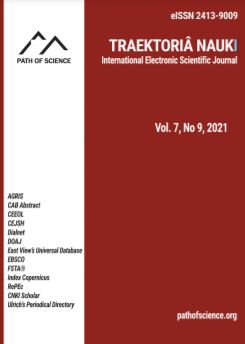Relationship Between Inflation and Unemployment: Testing Philips Curve Hypotheses and Investigating the Causes of Inflation and Unemployment in Nigeria
Relationship Between Inflation and Unemployment: Testing Philips Curve Hypotheses and Investigating the Causes of Inflation and Unemployment in Nigeria
Author(s): Samuel Ugochukwu Daniel, Victoria Chidinma Israel, Chibuzor Benjamin Chidubem, Joel QuansahSubject(s): National Economy, Labor relations, Methodology and research technology, Socio-Economic Research
Published by: Altezoro, s. r. o. & Dialog
Keywords: Inflation; Unemployment; Philip’s Curve; Monetary and Policies; Economic Diversification;
Summary/Abstract: The attainment of full employment and price stability are one of the most widely used measures of economic health. Inflation and unemployment are an integral part of an economy; however, there is a need to balance both such that neither inflation nor unemployment is too high. The persistent rise in inflation and unemployment rates has called for the need to investigate the relevance of Philip’s postulation of a trade-off between inflation and unemployment in Nigeria. In addition to the interdependency or independence of these variables, there is also a need to access factors that may contribute to the increasing inflation and unemployment rates in Nigeria. These will enable policymakers to formulate policies that affect inflation and unemployment and pay attention to other variables that may directly or indirectly affect inflation and unemployment. Therefore, the study aims to test the validity of Philip’s curve hypotheses and examine possible causes of inflation and unemployment in Nigeria. The study used secondary data sourced from the Central Bank of Nigeria and the World Bank. Vector Autoregressive and Error Correction methods were adopted for the analysis. The study revealed that there is no significant relationship between inflation and unemployment in Nigeria. Inefficiencies from the government’s side and insufficient domestic investment were observed to be the possible causes of unemployment, whereas; exchange rate depreciation and money supply are blamed for the rising price levels in Nigeria. The study concludes that the problems of inflation and unemployment arise from inefficiencies in both monetary and fiscal policies. Efficient use of fiscal and monetary policies was recommended to raise employment and output in all sectors to meet the steaming local demand and export. Also, the full implementation of economic diversification policies is recommended. Furthermore, the study recommends increasing government spending on social infrastructure and incentives to firms to promote investment in Nigeria. These will have an overall effect of increasing output, reducing unemployment and achieving non-inflationary growth in Nigeria.
Journal: Traektoriâ Nauki
- Issue Year: 7/2021
- Issue No: 09
- Page Range: 1013-1036
- Page Count: 24
- Language: English

